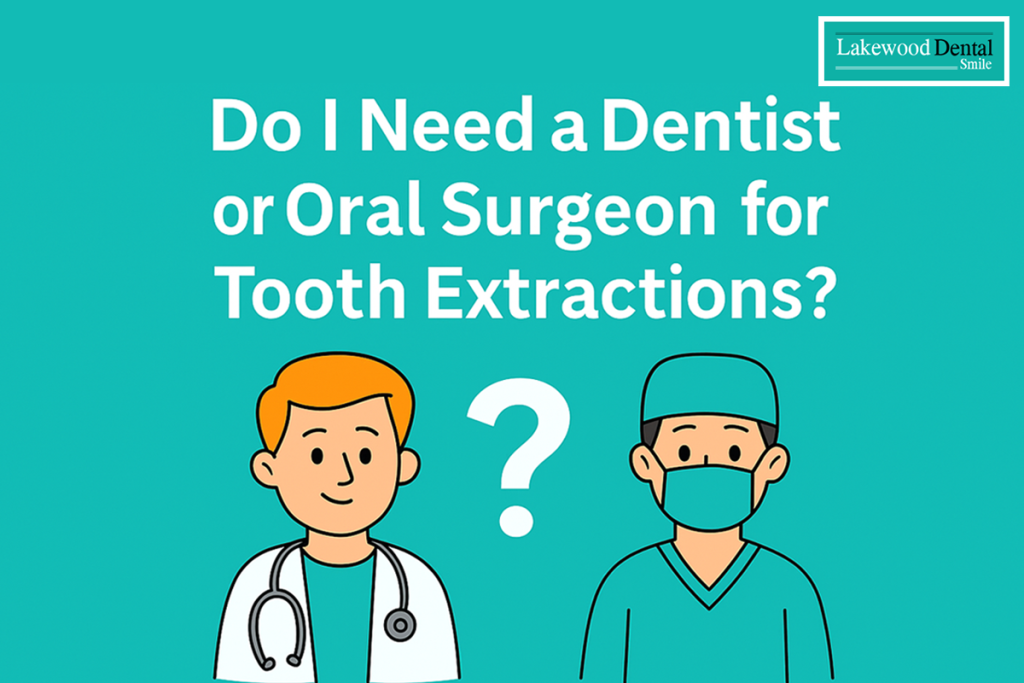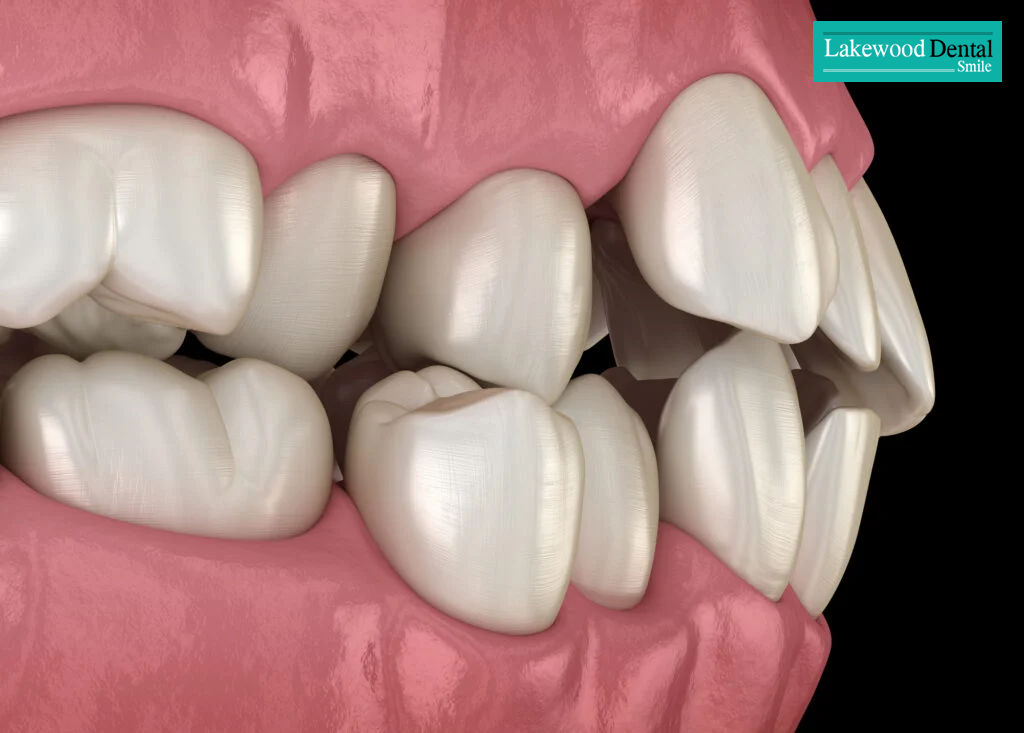When it comes to dentist or oral surgeon for tooth extractions, many patients wonder which professional is best suited for the procedure. Removing a tooth is not a decision to take lightly, and choosing the right provider can impact your comfort, safety, and recovery. Both dentists and oral surgeons are trained to perform extractions, but the best choice depends on the complexity of your case and your individual needs.

Dentist or Oral Surgeon? Understanding the Difference
Your first point of contact should usually be a general dentist. Dentists can:
- Examine the affected tooth and surrounding area
- Take X-rays if necessary
- Determine whether an extraction is needed
For many patients, simple extractions can be performed comfortably in a dental office using local anesthesia. However, if a tooth is severely damaged, impacted, or requires surgical techniques, your dentist may refer you to an oral surgeon who has specialized training for more complex cases.
When to See an Oral Surgeon
While dentists handle most routine extractions, there are specific situations where an oral surgeon is the safer and more effective option.
1. Impacted Teeth
Impacted teeth, especially wisdom teeth, often require surgical removal. Oral surgeons are trained in techniques like gum incision or bone removal and can provide sedation or general anesthesia for a stress-free experience.
2. Complicated Facial Anatomy
Some patients have unique jaw structures, large sinuses, or limited jaw mobility that make extractions more challenging. Oral surgeons are equipped to navigate these complexities safely.
3. Cracked or Fractured Teeth
Teeth that are broken or severely cracked may need surgical extraction to avoid damaging surrounding tissues. Oral surgeons have the expertise to handle these cases with precision.
4. Dental Anxiety or Sedation Needs
For patients with severe dental anxiety or a preference for being asleep during the procedure, oral surgeons can provide IV or general anesthesia, ensuring a comfortable experience.
How to Decide Between a Dentist and an Oral Surgeon
Choosing between a dentist or oral surgeon for tooth extractions depends on several factors:
– Complexity of the Extraction: Simple extractions are usually handled by dentists; complicated or surgical cases need an oral surgeon.
– Tooth Condition: Impacted, fractured, or infected teeth often require surgical expertise.
– Comfort Level and Anxiety: If sedation or anesthesia is needed, an oral surgeon may be preferable.
– Referral Recommendations: Always follow your dentist’s advice—they can evaluate your case and refer you if necessary.
FAQs About Tooth Extractions
- Can a dentist remove wisdom teeth?
Yes, if fully erupted and straightforward. Impacted or awkwardly positioned wisdom teeth usually require an oral surgeon.
- How do I know if my extraction will be complicated?
Your dentist evaluates X-rays and examines the tooth. Complications arise with impacted teeth, fractures below the gum, or when surgical cutting of gums or bone is needed.
- Is tooth extraction painful?
Modern anesthesia ensures most patients feel only mild pressure. Oral surgeons also offer sedation options for anxiety or complex cases.
- What’s the recovery like?
Simple extractions heal in a few days, while surgical extractions may take longer. Following aftercare instructions is essential for smooth recovery.
- Should I see a dentist or go straight to an oral surgeon?
It’s best to see your dentist first. They can assess your situation and advise if a referral to an oral surgeon is necessary.
Tooth Extractions at Lakewood Dental Smile – Dearborn, Michigan
At Lakewood Dental Smile in Dearborn, Michigan, patients receive expert guidance for every step of tooth extraction. Whether you need a simple procedure or a referral to an oral surgeon, our team ensures a safe, comfortable, and effective experience.
Book your consultation today and take the first step toward a healthy, pain-free smile.




